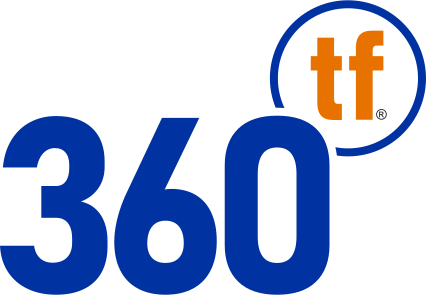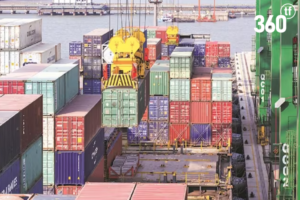The success of recent interoperability trials between two different electronic bills of lading (eBL) platforms, edoxOnline and CargoX – with Swift as a connecting network – underscores advances made by the trade finance community, corporates and the wider industry in helping accelerate digital trade, writes Avanee Gokhale, global lead for trade strategy at Swift.
As part of the industry’s digital transformation, digital trade will drive unprecedented levels of operational efficiencies from reduced manual data entry, data-led reporting, cash flow management and fraud mitigation.
According to the International Chamber of Commerce (ICC) and the Boston Consulting Group, trade digitisation could boost trade revenues by up to 20%, cut processing times by 60%, and save global trade banks up to US$6bn annually.
Connecting digital islands
As part of Swift’s vision to deliver instant and frictionless cross-border transactions, we have been exploring how we can ensure interoperability between emerging platforms that are at risk of becoming unconnected ‘digital islands’. This includes exploring how we can interlink central bank digital currencies (CBDCs) as they are rolled out across the world, as well as conducting experiments to test how we can enable interoperability between multiple tokenised asset platforms.
Likewise, innovations are underway in trade finance. In a new set of interoperability trials, we’re exploring ways to drive the adoption of digital trade solutions worldwide.
eBL: The future of trade documentation
Traditionally paper-based, an eBL is a document used in transporting goods by sea, air or land. It contains the same information as the paper document, including details about the shipper, the consignee, the goods being transported and the terms and conditions of the shipment.
As part of the drive to digitise trade, bills of lading are increasingly being created and stored electronically on digital platforms. These platforms allow key participants in international trade transactions – shippers, traders, ship agents, banks, inspectors, customs agents, chambers, et. – to connect and securely share eBL in real time. A new frontier in transforming international trade, the scaled use of eBL could unlock an additional US$40bn in global trade, according to McKinsey.
Ocean carriers issue around 45 to 50 million bills of lading per year. While bulk shipping issues significantly fewer bills, the value of the goods covered by these bills is substantially higher. We see the industry working together to digitise trade, from the Digital Container Shipping Association (DSCA) committing to issuing 100% of bills of lading digitally for container shipping, to Baltic and International Maritime Council (Bimco) targeting to reach 25% usage across the entire bulk sector.
The challenge
Today, for a transaction to flow efficiently, all stakeholders need to be onboarded to the same platform. There are currently 10 eBL platforms authorised by the International Group of Protection & Indemnity Clubs, which are not connected and integrated. This results in all parties needing to sign up to multiple providers with different processes and rulebooks – which could be time-consuming, costly and inefficient. Some revert to paper-based documentation because of the effort in trying to get everybody to collaborate.
Developing an interoperability model
Swift has thus been working with members of the Future International Trade (FIT) Alliance (DCSA, International Federation of Freight Forwarders Association or FIATA, Bimco and the ICC) alongside eBL platform providers to develop an interoperable model.
With this digital trade solution, we could receive data from one trade platform via Application Programming Interface (API) and pass it to a different platform. This allows companies to trade with each other and exchange eBLs, regardless of eBL platforms. This means that customers need only sign up for one provider, speeding up document exchange while reducing costs, automating processes and improving security. This drives greater supply chain interoperability and transparency in international trade.
Developing a proof of concept
In recent months, we’ve been developing a proof of concept (POC) for this solution, using an Electronic Transport Document API that leverages DCSA’s industry specifications. In collaboration with two authorised eBL providers, edoxOnline and CargoX, a series of interoperability trials were conducted in early 2023 to understand the solution’s potential in enabling timely and secure interactions between eBL platforms in a typical bill of lading lifecycle – creation, transfer and surrender – with Swift as a connecting network.
Supporting frictionless trade
The proposed interoperability solution will accelerate the adoption of frictionless trade transactions and reduce the industry’s reliance on paper, lower costs and curtail the risk of demurrage. All these contribute to making supply chain processes more transparent, efficient and reliable while improving the accuracy and traceability of data.
Though global adoption will take time, eBL is one of the many viable solutions to help bridge the interoperability challenge in digital trade. Providing new levels of traceability and accuracy of trade data promises more efficient and reliable supply chain processes that deliver a better customer experience. Interacting through a connecting partner that serves as an identity proxy is just as crucial in achieving interoperability to accelerate frictionless global trade.
Next steps
The results of this POC will be shared with the community later in 2023. A second phase of the project is also planned to further validate the solution with additional eBL platform providers as well as banks. This extended work will include an industry consultation on a supporting legal interoperability framework to support and protect participants.
Courtesy: gtreview.com




